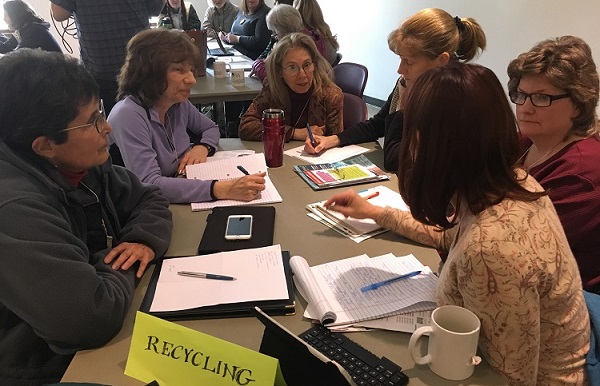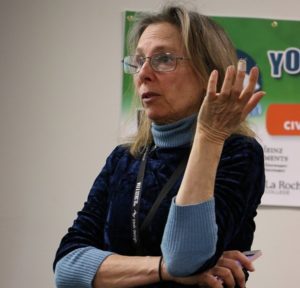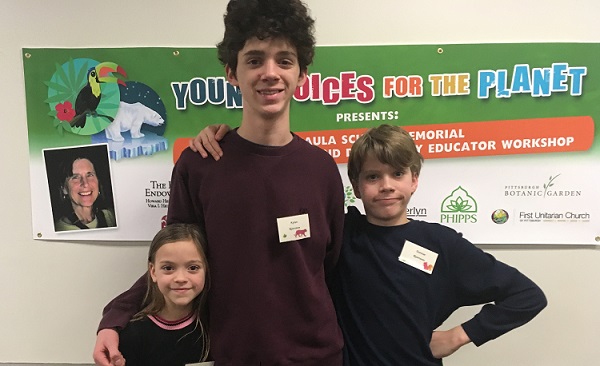
With a $90,000 grant from The Heinz Endowments, Young Voices for the Planet is making a lot more noise
Young Voices for the Planet empowers kids to speak their minds about environmental issues. Thanks to a $90,000 grant from The Heinz Endowments, more people are hearing them.
The foundation’s award supports a series of Civic Engagement and Democracy Educator Workshops named in memory of local conservationist Paula Sculley. The next one will take place June 26 at Pittsburgh Botanic Garden.
During the daylong professional development courses, which are Act 48 credit-approved, more than three dozen teachers and other youth mentors learn how to motivate their students to take a stand on issues such as climate change and fracking. (Register here.)

Creating a generation of self-advocates is Lynne Cherry’s mission.
“A lot of kids are disconnected from nature,” says Cherry, founder of Young Voices. “We’re getting them engaged on issues that are relevant to their lives. We give them the courage to go to a town meeting and speak out. They can be too young to vote, but they are never too young to go to a public forum and express their views.”
Cherry, a children’s book author and illustrator, facilitates each session alongside representatives from environmental organizations such as Allegheny Land Trust. In addition to lectures and breakout sessions, the workshops provide a forum for Young Voices for the Planet films.
The short documentaries profile kids who are making an impact on their communities. “Words Have Power,” the latest entry in the series, is about Jaysa, a 10-year-old asthmatic from Bridgeport, Conn., who got a coal-fired power plant in her neighborhood shut down. She continues to fight against “environmental racism.”
Another film focuses on three 9-year-old girls who worked to change a law that prohibited solar panels on public buildings in their town. Through their actions, the community is now filled with the sun-powered energy savers. The trio then went on to save a local greenspace.
When Cherry talks to kids about weighty environmental issues, she always starts off with a positive story about kids who took a stand, challenged their leaders and made a change. She encourages teachers to do the same.
“I can’t leave them with this dire sense of the world without empowering them,” she says.

Hearing the success of their peers inspires kids to take action, whether it’s planting trees or getting their school cafeteria to offer local, organic food.
She encourages kids to follow an ACTION plan: Analyze the problem, Collaborate, create a Timetable, Identify a mentor, Organize a team and share the News.
In the future, the program hopes to form partnerships with other Earth-saving organizations, such as Communitopia, which focuses on creating healthier communities by identifying, researching, and advocating for solutions to reduce greenhouse gas pollution.
“There’s great power in working together,” Cherry says. “By working in tandem with other groups it makes us stronger and helps us fine-tune our message.”